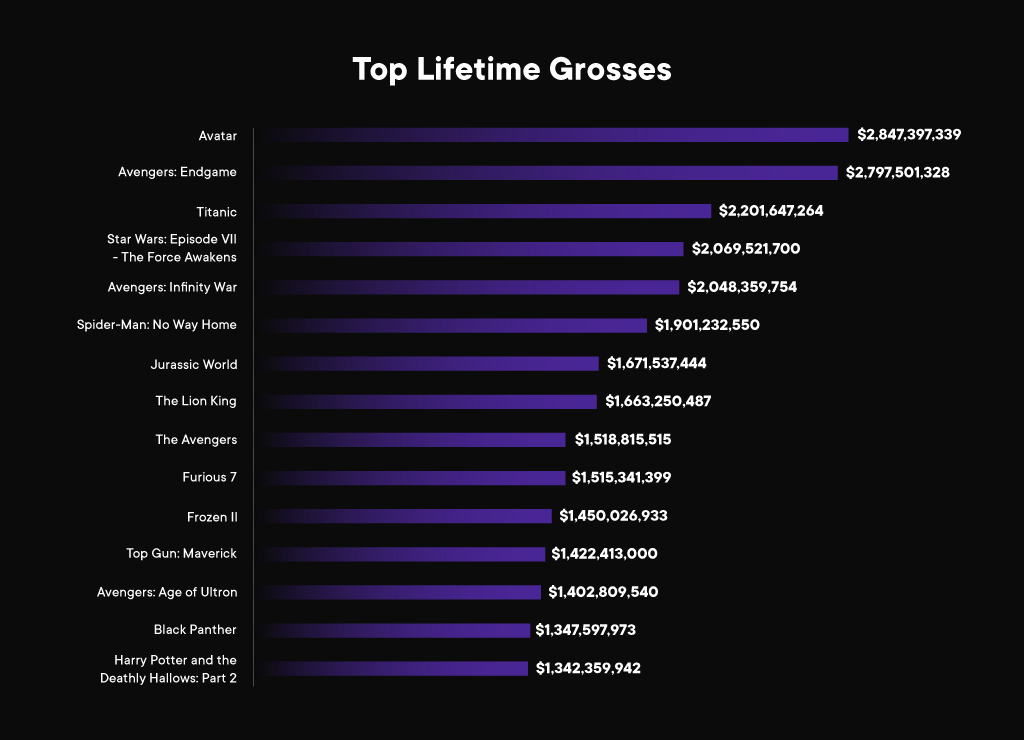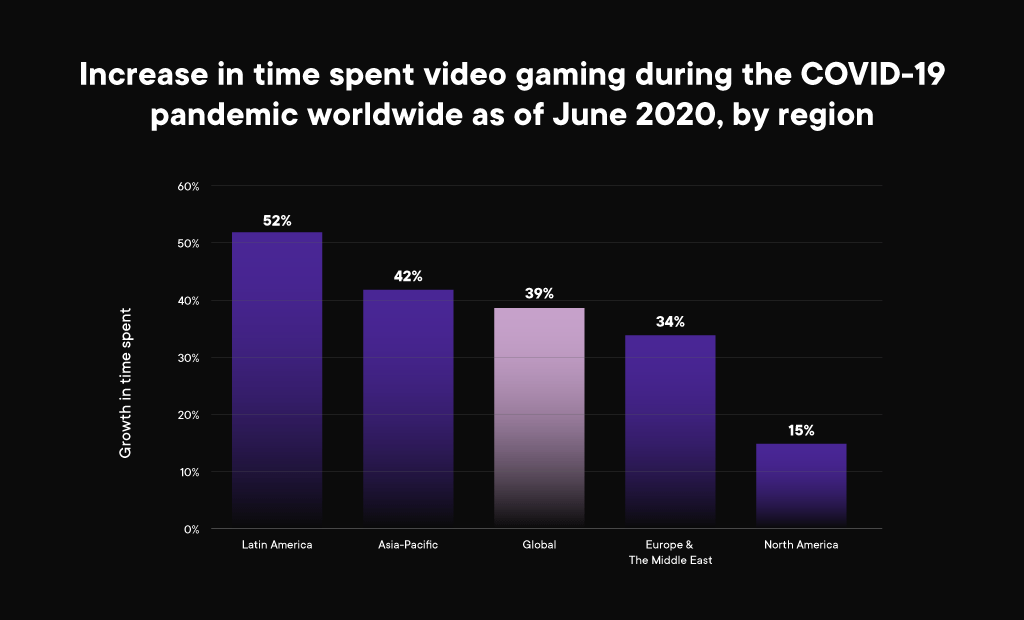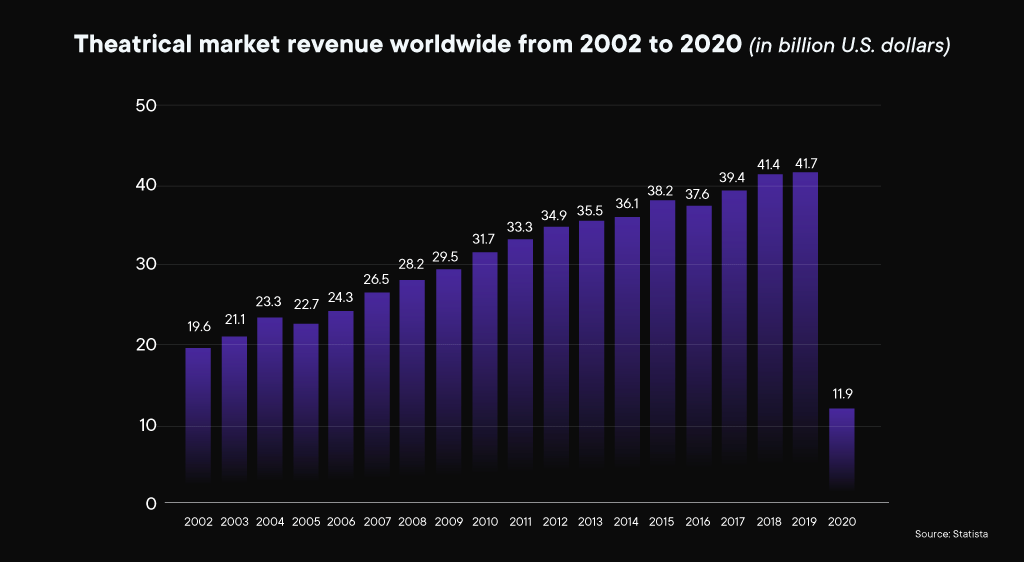Film Wars- Stepping into the New Age of Content Viewership

It was 2009 when Avatar came out, and as a college student, I was proud to witness the spectacle of a technically-sound 3D movie, a cinematic experience of a lifetime.

More than 12 years later, Avatar still holds the record for the highest-grossing cinema of all time, with a worldwide collection of $2.847 Billion!
Avatar was a movie best watched in theatres for that astute and wholesome cinematic experience, an experience impossible to mimic even with the latest home entertainment options.
A decade later, Marvel positioned itself next in line as the second highest worldwide grosser of all time with Avengers Endgame in 2019.
A lot has changed in a decade. Marvel built its base for about a decade with its standalone comic-book movies and two other Avengers movies before achieving this feat at the box office. It was smart enough to understand the pulse of the audience and the growing interest in comic book-themed movies and TV shows.
Marvel became a giant over the years as the viewer preferences started to change, and a growing interest in live-action movies based on comic sources began to gain traction.
Cinephiles vs. Comic Book Fans
I am an avid cinephile, taking every chance to watch classics like The Godfather, Taxi Driver, Goodfellas, and Pulp Fiction, to name a few. So, when Martin Scorsese made an infamous statement comparing Marvel movies to amusement park rides, I could not help but agree with his view. A cookie-cutter template with abundant fan service and politically correct inclusive messaging is what phase 4 of Marvel looks like.

But personal opinion aside, the flavor of the season had changed, and comic book movies were minting money at the box office. This was an interesting phenomenon for someone in the Entertainment, Media, and Gaming industry. The gaming industry coined money and beat Hollywood revenue with Grand Theft Auto 5. During the pandemic, the gaming industry saw the highest footfalls among its peer industries. Unfortunately, that was not the case for theaters.
The Downfall of Theater Viewership

Theatrical revenue hit an all-time low after the shock of COVID, and the 2020 revenue numbers paint the picture perfectly.
But now that the dust has settled, the theater viewership has not. And one cannot blame the pandemic as the only reason anymore.
Consumer psychology has drastically changed post the COVID scenario, and according to a study, 55% of people preferred watching movies at home.
Theatrical vs. OTT Releases
Live-action movies that followed a pre-set template were safe for producers, worked well at the box office, and garnered enough business worldwide. Or at least, so I thought.
The pandemic came in like Thanos and, with a snap, reset the box office game.
OTTs had already become a vital part of everyone’s lives. I am subscribed to most OTTs, and it is a similar case amongst my peers and friends.
Due to the pandemic, most theaters were forced to shut down temporarily in 2020. With accruing interest in productions, studios had no other option but to release movies directly to OTTs. As people themselves could not freely wander out due to the lockdown norms, OTTs had become their go-to source of entertainment. During the lockdown, I caught up with Better Call Saul, Stranger Things, and many other TV shows and movies.
What did this do for the industry?

For one, the outdated exclusive window requirements saw a fall. Hollywood movies would only be released seven months after their theatrical release. This number was reduced to 45 days.
Studios are double dipping with theatrical and OTT releases, with the shorter window favoring OTT revenue a little more.
For theatrical releases, the first 38 days are crucial. But as I have stated earlier, Hollywood has struggled to provide a theatrical blockbuster for a long time outside of Marvel and DC.
High budgets, worldwide promotions, and a 50% split with exhibitors have added conundrums, whereas studios can have field-day OTT releases where they get to keep 80% of the revenue.
The Race to Beat Netflix
Netflix may have been the innovator in the streaming space, but as things stand now, I don’t see them having any particular edge over competitors compared to a decade ago.
Do not take my word for it; they are seeing a dip in subscribers and are even planning for a basic ad-included tier, which goes against what Netflix initially did. However, such is the current state of the saturated market amongst streaming platforms

Giants like Paramount, Disney, and HBO now have almost equal footing in the streaming space, and these players are veterans in the media and entertainment industry compared to Netflix. HBO Max will have an added company value of as much as $14 billion if it adds 11 million users at $144/year.
Jason Kilar, CEO of Warner Media, said the long-term value of HBO Max subscribers is worth more than the box office revenue of not just one of these movies but all of these movies!
While individual movies are devalued in their move to a streaming platform, the collection for the platform sees an increase in value, which is an ecosystem in itself and gives an incentive to the buyer to subscribe.
So, should Studios opt for streaming releases over Theaters?
As far as I see, there is no concrete answer here. No doubt theater releases have become tricky business-wise with so many parties involved, more rules, fewer shares, etc., but Top Gun Maverick just pulled off a sweet surprise with majestic global revenue, hitting a home run.
It is still doing great business, lasting over newer releases. Tom Cruise has consistently proved that he is a beast who can carry mega-blockbusters with ease, and the movie was a riot to watch in theatres and a treat after the extended lockdown. “Top Gun” is a fantastic movie without a superhero element, sans Tom Cruise!
Meanwhile, Marvel’s new phase is in a tricky spot. Thor: Love and Thunder got a lukewarm welcome, and She-Hulk, the TV show, looks dead on arrival. As I mentioned earlier, the message and preaching are getting old.

On the other hand, DC has canceled Batgirl and Supergirl projects worth over $70 million, which raises more questions. For one, the material may be questionable, which is what my research has led me to believe. Fans are not super impressed by political correctness and tend to pay attention to messages over the quality of content. People now are looking for pure entertainment in an overly politicized world.
The Right Time to Release Movies on OTT Post Theatrical Release
If a studio opts to prioritize OTT, it endures a significant financial squeeze in the short term to gain long-term financial security through scaled streaming.
This requires an astronomical investment and is a task in itself. Few services will survive the gauntlet. Those that do will be in a position to generate massive annual revenues.
Box office tickets and streaming revenues cannot be fairly compared as they are quite different.
Direct revenues from streaming may be lower, but they may be less volatile, replaced by more stable monthly subscriptions, like how boxed software suites have shifted to subscription services.
I think a portfolio-based approach is optimal for now and will bring balance on all fronts.
For value-based audiences and audiences for niche content, low production releases in large numbers are preferable. In such a scenario, immediate release to OTT is beneficial to studios, too, with more significant margins.
Warner Bros. Discovery has shifted the previous 45-day theatrical window put in place by former Warner Media CEO Jason Kilar, and now, new Warner Bros. films are no longer guaranteed to hit OTTs on that schedule.
The studio remains committed to the 45-day theatrical window but may extend the time between when a film is first released in theaters and when it is streaming on HBO Max.
My intuition tells me the release timing will vary based on the movie.
There is a dire need for studios to balance the revenue between Theaters and OTT platforms. With the audience split between Theater and OTT preferences, the right balance to capitalize on these potentials is the challenge of the hour.

The wave of change in viewer mentality has already hit, and the ecosystem of streaming platforms has made it even more challenging for studios. Still, double-dipping between theaters and Streaming platforms is possible if powered by an AI-powered data-backed solution.
Affine’s Movies/Shows cadence planning leverages box-office performance data with extensive reports and plans for a feasible and dynamic post-theatrical right-acting as a movie planning solution for OTT platforms. It proposes an ideal data-backed active window for OTT platforms to release a movie post-theatrical release and ensure maximum profits for the production house and significant benefits for SVOD/OTT platforms.
The payoff is that studios can double-dip their revenue while finding the ideal balance and catering to theatrical and streaming audiences.
Conclusion
I, for one, do not believe in a monopoly either on Streaming platforms or Theaters. Personal observations have led me to believe that the viewership behavior and content preferences have vastly changed over the years, but theaters and streaming can coexist peacefully.
Studios need to release their content backed by data to understand viewer preferences. Mega flicks with superior cinematic values are no brainer a theatrical release, but a conservatively produced movie might not share the same fate.
But this is just a general rule of thumb. Studios, with their multimillion-dollar projects, can’t just go based on this, a thoroughly researched strategy powered by AI catering to this viewer-driven market.
What does Affine bring to the table?
Affine is a pioneer and a veteran in the data analytics industry and has worked with giants like Warner Bros Theatricals, Zee 5, Disney Studios, Sony, Epic, and many other marquee organizations. From game analytics to media and entertainment, Affine has been instrumental in the success stories of many Fortune 500 global organizations; and is an expert in personalization science with its prowess in AI & ML.
Learn more about how Affine can revamp your film production business!
